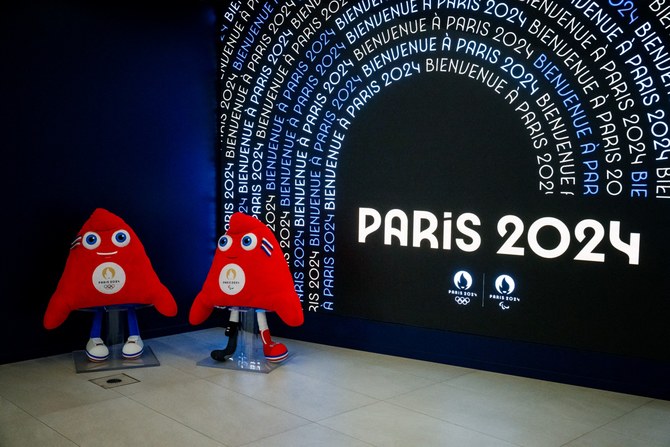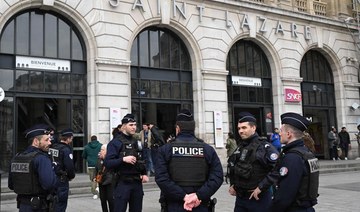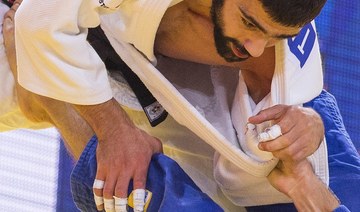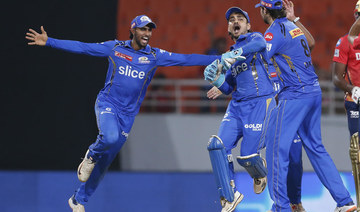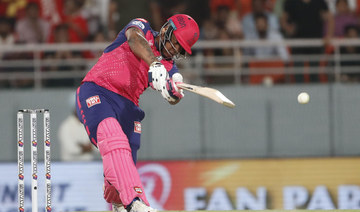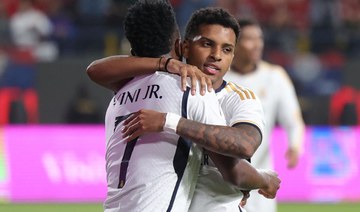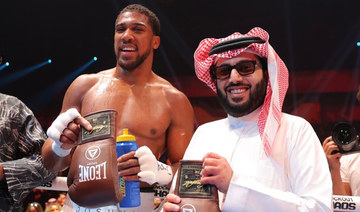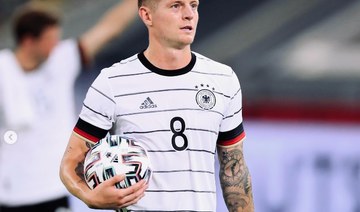On Monday, the Olympic flame was lit in Greece, and the traditional torch began its 68-stage three-month journey to Paris, where it will arrive on July 25 to signal the start the following day of the Games of the XXXIII Olympiad.
As the torch relay travels the length of France, and global interest in the Olympics grows daily over the next three months, one question above all others will be puzzling sports fans around the world.
What on earth is that peculiar mascot Paris has chosen to represent itself on the world stage?
The answer is a hat — or, more specifically, a Phrygian cap, as modelled by Marianne, symbol of the French Revolution.
Captured in oils in an 1830 painting by Eugene Delacroix, on show in the Louvre, Marianne and her hat are omnipresent in France, represented in busts and statues throughout the nation and pictured on coins and stamps.
Traditionally, Olympic mascots have either been animals or invented creatures of some sort.
But in a minor revolution of its own, 235 years after the storming of the Bastille, the Paris Olympic committee has gone in a different direction.
Instead, it has chosen to animate an object — not, as most people might have assumed, the Eiffel Tower (too predictable and, some might argue, too identifiable) but a piece of historic millinery.
Meet the “Phryges” (pronounced “freej” — the “s” is silent.)
There are two of the things, decked out in red, white and blue, with one sporting a running blade on its right leg to symbolize the Paralympics.
In the official online Olympic shop, they are available as plush toys or printed variously on backpacks, T-shirts, hoodies, mugs, tote bags, caps, water bottles, badges, lunch boxes. You can even buy an actual Phrygian cap, although regrettably only in infant size.
What has revolution got to do with the Olympics? Simple, says the committee behind the Phryges: “As Paris 2024’s vision is to demonstrate that sport can change lives, the mascots will be playing a major role by leading a revolution through sport.”
To scholars of ancient history, the hat is also a symbol of 18th-century cultural appropriation.
Although it came to symbolize the French Revolution, the Phrygian cap was worn originally in ancient Phrygia, a kingdom that thrived between 1200 and 700 BCE in the center of what is today Turkiye.
There is a funny thing about Olympic mascots. Including Paris, there have been 28 of the things since 1968, when the very first one appeared, but most people would be hard pressed to remember any of them.
It has not been for want of trying on behalf of the organizing committees — there have been some very peculiar offerings.
Take “Miraitowa,” the mascot of the 2020 Olympics in Tokyo. Remember him — or it?
A subtle blend of “traditional and futurist style,” Miraitowa embodied “both the old and the new, echoing the concept of innovation from harmony.”
One of 2,042 submitted designs, it was chosen in a poll of Japanese primary school children.
In 2014, Russia played it relatively straight and, perhaps unable to settle on a single mascot, chose three for the winter games in Sochi: a hare, a polar bear and a leopard, for no apparent reason.
It was certainly a welcome break from London’s surreal offering in 2012.
“Wenlock” was a baffling confection of obscure references — a metallic look explained by the fact that he was, supposedly, “made from one of the last drops of steel used to build the Olympic Stadium,” the light on his head reminiscent of that found on London’s famous black cabs, and the shape of his forehead “identical to that of the Olympic Stadium roof.”
His large single eye was “the lens of a camera, filming everything he sees,” while “the three points on his head represent the three places on the podium for the medal winners.”
Wenlock was an object lesson in death by committee.
And why “Wenlock”? From the town of Much Wenlock in Shropshire, of course, where the traditional Much Wenlock Games were said to have inspired Pierre de Coubertin, father of the modern Olympic movement.
In terms of obscure references, two other mascots stand out as contenders with Wenlock for a place on the podium.
In 2004 Athens offered Phevos and Athena, a brother and sister double act named for two gods of ancient Olympus but modelled on the “daidala,” a terracotta child’s toy from the 7th century BCE.
But until Paris entered the race, it was widely considered that the gold medal belonged to “Izzy,” which represented Atlanta in 1996. At the time, Izzy was unusual in being neither an animal, nor a human figure, nor an object. In fact, no-one was entirely sure what it was.
Originally named, appropriately, “Whatizit,” after a poor reception at its launch after the closing ceremony of the 1992 Games in Barcelona (which was represented by “Cobi,” a cubist vision of a Pyrenean mountain dog), Izzy underwent a radical makeover.
Alas, no-one was any wiser after Izzy’s relaunch, but it was finally put of its misery in November 2022, when the Phryges were unveiled in Paris.
As a snarky Associated Press report put it at the time, “Hey, Izzy: your 26-year reign as the worst Olympic mascot is over.”
Ironically, it is to France that the credit must go for making Olympic mascots a thing in the very first place — the first one was born in 1968, for the Winter Games in Grenoble.
It comes as little surprise to learn that “Shuss,” a cartoonish man with a large, round head, leaning forward over a pair of skis, “was created in a hurry,” according to the International Olympic Committee.
In fact, “in January 1967, his designer had only one night to prepare a plan for submission.”
While amusing, such matters might at first appear to be of little interest in a Saudi Arabia rightly focused on preparing for its 13th appearance at the summer Olympics, when it will be represented in the equestrian and taekwondo events.
But in August 2022, Prince Abdulaziz bin Turki Al-Faisal Al-Saud, Saudi Arabia’s sports minister and the Saudi Olympic and Paralympic Committee president, hinted that one day, in the not-too-distant future, the Kingdom might bid to host the Olympics.
“We’re open to discuss with the IOC about this for the future,” he said during an interview with France 24. “I think Saudi Arabia has showcased that we can host such events.”
It most certainly has, investing in, promoting and hosting global sports including football, golf, Formula One, tennis, boxing and wrestling, winning the bid to host the 22nd Asian Games and 7th Asian para games in Riyadh in 2034 and, demonstrating its ability to bring imagination to bear on the biggest stage, being chosen by the world to stage Expo 2030 in Riyadh.
When it comes to planning, investment, infrastructure and organization, in other words, the OIC is unlikely to harbor any doubts about the Kingdom’s ability to give the world one of the best Olympics it has ever seen.
But the big question is this: what would Saudi Arabia choose for its mascot?
As Olympic committees from Grenoble to Paris have demonstrated with depressing consistency, it is never too early to start thinking about this, the most important and potentially embarrassing aspect of every Olympics since 1968.



